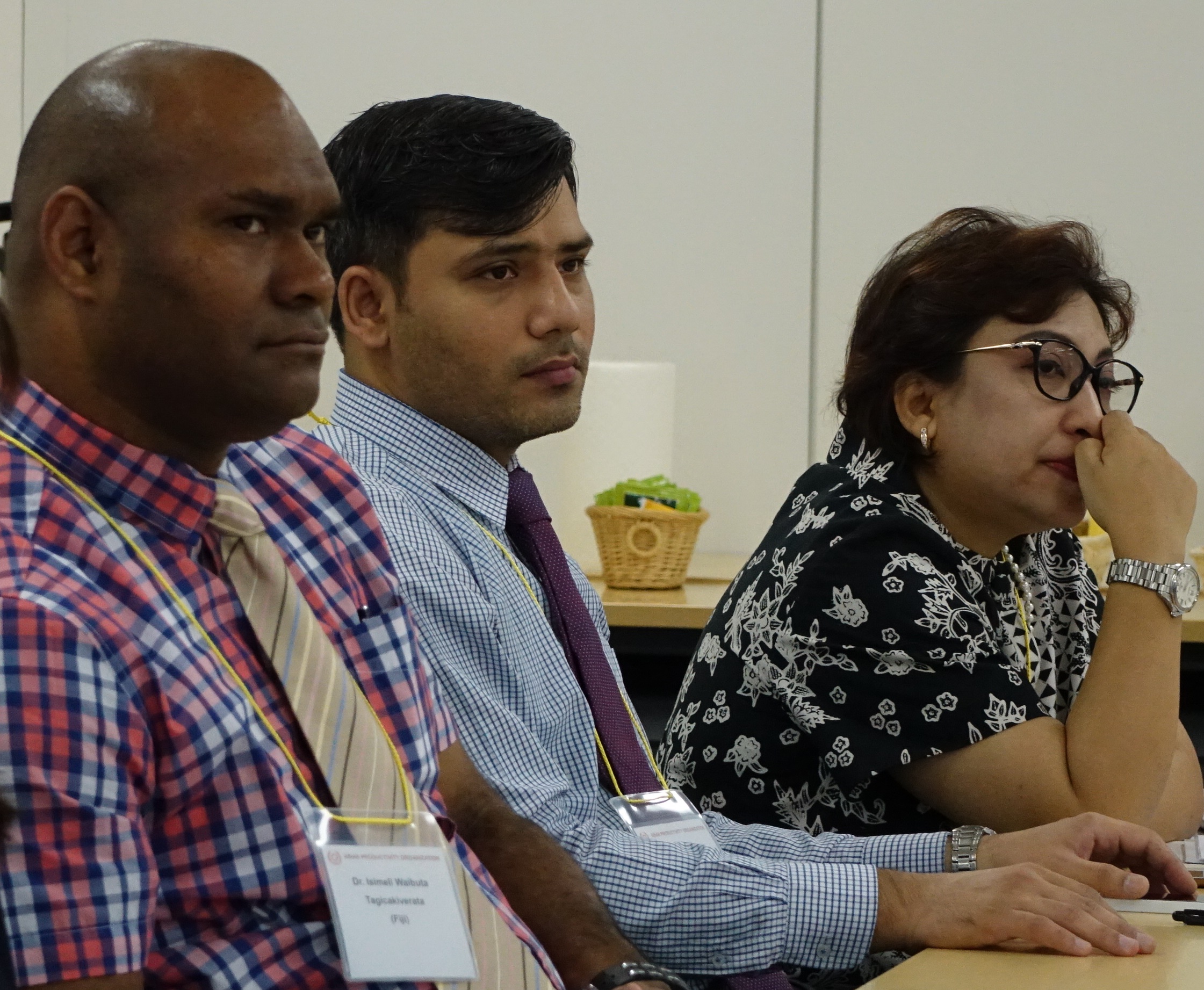
Select Page
The Asian Productivity Organization (APO) commenced a three-day workshop, 13–15 November, for member country national productivity organizations (NPOs) on Results-oriented Monitoring and Evaluation of Capacity Development Programs and Projects. The workshop at the Secretariat in Tokyo is being attended by 18 participants from 14 member countries, including APO liaison officers as well as NPO officers and consultants responsible for project monitoring and evaluation.
 Results-based management (RBM) is a strategy to ensure that all actors contribute to achieving the desired results. It comprises a set of tools for planning, monitoring, evaluating, and reporting. By focusing on results rather than actions, RBM helps organizations understand outcomes more thoroughly, helping to achieve greater efficiency, effectiveness, and accountability.
Results-based management (RBM) is a strategy to ensure that all actors contribute to achieving the desired results. It comprises a set of tools for planning, monitoring, evaluating, and reporting. By focusing on results rather than actions, RBM helps organizations understand outcomes more thoroughly, helping to achieve greater efficiency, effectiveness, and accountability.
The workshop aims to enhance participants’ knowledge of the concept, methodologies, and tools of RBM as well as enable them to identify appropriate methodology and tools for monitoring and evaluation of national capacity development programs and projects. It will develop a system for monitoring and evaluation of activities, with the roles of the APO Secretariat and NPOs delineated.
Under the Roadmap to Achieve the APO Vision 2020, the RBM approach was adopted to align efforts to achieve the three key goals of improving the productivity of member countries, raising their competitiveness, and achieving recognition of the APO as the leading international organization on productivity enhancement. The main objective of the workshop is identifying appropriate indicators and developing a system for monitoring and evaluating the impact of those efforts.
The workshop is being conducted by two APO international experts: Development Academy of the Philippines Senior Vice-President Magdalena Legaspi Mendoza; and US-based Senior Advisor to the Independent Evaluation Group of the World Bank Dr. Ray C. Rist. The inaugural session included an overview of APO activities related to RBM by the Secretariat Research & Planning Department and an opening address by Administration & Finance Department Director Sherman Loo.